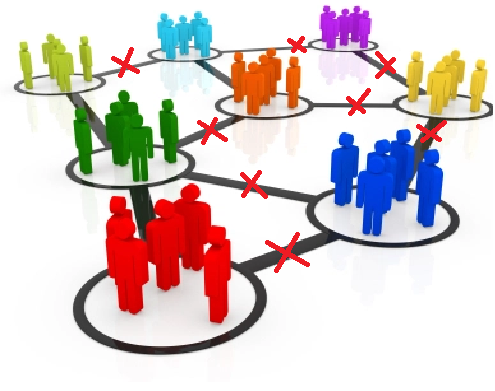Much of today’s entertainment takes on a digital form; movies, music, games, and other digital goods. Naturally, in this day and age where network access is considered an essential service and almost everybody owns a personal computer, Torrenting is one of the most convenient ways to share content (both legally and illegally). Torrenting sites are very useful in that they gather content and allow everybody to access all this content, whether it is recent content or content that was released a long time ago. However, not everybody has a fast (or unlimited data) internet connection. Especially in Canada, where data plans are criminally overpriced. For Torrenting to work, we must have “seeders” (users who are uploading the data) in order for “leechers” to be able to download a file. The more seeders a file has, the faster a leecher is able to download the data. Typically, a user would download the file they want as a leecher, and then contribute afterwards as a seeder. The new seeder will then help increase the download speed for the next leecher, who will then join as a seeder, and so on. The problem that arises is the fact that a user is not obligated to become a seeder; a user may choose to download the file and opt out of being a seeder, as seeding uses up data and may slow down your connection while seeding. Then, why would anybody become a seeder? Game Theory helps explain why.

Suppose there were 2 users looking to torrent files. Torrenting a file would give 2 points of satisfaction, while saving up data/bandwidth is worth 1 (since they decided that it is worth using data to torrent). Then, they would both be better off seeding than if they were to both opt out. However, this is not the Nash equilibrium, as if user A opted out from becoming a seeder and user B becomes a seeder, then user A gets to download the file that user B uploads while using minimal bandwidth/data (which can be utilized elsewhere, such as torrenting more files) for a total of 3 points of satisfaction. User B on the other hand would not be able to download without a seeder, in addition to using up data themselves to seed for others. The same can be said if user B opted out, and user A becomes a seeder. At this point, the user that seeds realizes that they’re better off opting out as well, as even though neither would have the files they wanted, using up bandwidth for something else is better than being purely leeched off of). This would mean that all torrents are essentially dead, with nobody to upload.
This is why many trackers implement a Share Ratio, which keeps track of how much data a user uploads, versus how much a user downloads; a user with a lower share ratio risks getting blacklisted (and thus unable to download). This changes the payoff matrix.

Previously, opting out allowed to gain 2 points of satisfaction from torrenting, plus 1 point of satisfaction of using remaining bandwidth for something else. Now, in the long run, opting out and being blacklisted would prevent them from gaining the 2 points of satisfaction. This gives incentive for users to become seeders, allowing torrenting to become self regulatory. Because the Nash equilibrium is now for users to seed for eachother, the system becomes sustainable, and introducing punishments (such as fines) would be the only way to prevent illegal torrents.

